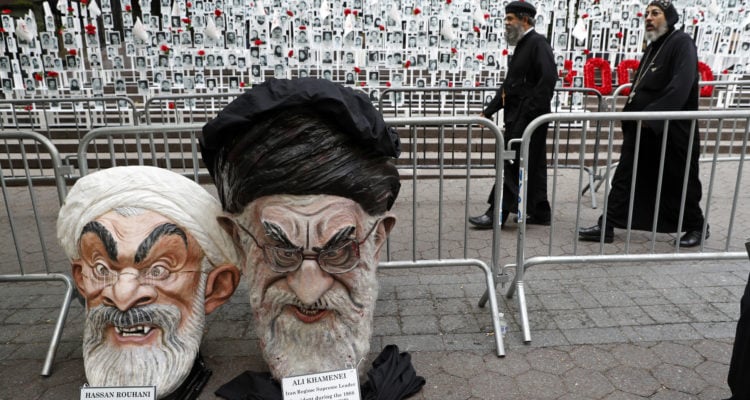Islamic Republic appears to cave in to massive social media uproar from Iranians as Persian language hashtag #DoNotExecute tops trend list.
By Paul Shindman, World Israel News
A massive social media blitz by Iranians may have bought some time for three young men facing execution for participating in protests last year against poverty, inflation and economic mismanagement by Iran’s government, the BBC reported Thursday.
A retrial was ordered after the Persian hashtag #do_not_execute was used 7.5 million times following a decision by Iran’s Supreme Court to uphold the death sentences of Amirhossein Moradi, Mohammad Rajabi and Saeed Tamjidi, all reported to be in their 20s. The three were arrested last November during protests against the government’s decision to raise the price of fuel.
Hundreds of Iranians were reportedly killed in the protests that continued for several months. Thousands more were arrested including the three men, whose lives gained a temporary reprieve after many Iranian celebrities backed the social media campaign.
Iran is second only to China in the number of citizens it executes every year. The annual Human Freedom Index ranks Iran as one of the worst human rights offenders in the world, an ignoble position it has maintained for decades.
According to the rights group Amnesty International, Iran “heavily suppressed the rights to freedom of expression, association and assembly. Security forces used lethal force unlawfully to crush protests, killing hundreds, and arbitrarily detaining thousands of protesters.”
“Scores of people were executed, sometimes in public; several were under the age of 18 at the time of the crime. There were systematic violations of fair trial rights,” Amnesty reported, noting that Iranian authorities “committed the ongoing crime against humanity of enforced disappearance by systematically concealing the fate and whereabouts of several thousand political dissidents extrajudicially executed in secret.”
The three men appear to have gained enough attention before Iran started to choke internet access after the #DontExecute became the leading trend in the world Tuesday evening, Radio Farda reported.
Their reprieve may only be temporary, as Iran has a long record of ignoring international human rights laws and carrying out brutal executions of opponents to the hard-line Islamic regime.
The chapter on Iran in the U.S. State Department’s annual report on human rights and freedoms reads like a nightmare, describing in detail how executions are used not just against criminals, but to suppress any dissent against the rule of the ayatollahs.
The report noted that most executions were for crimes that don’t meet any international legal standards of “most serious crimes” and took place “without fair trials of individuals, including juvenile offenders.”
“According to human rights organizations and media reports, the government continued to carry out some executions by torture, including hanging by cranes,” the State Department report states. “Prisoners are lifted from the ground by their necks and die slowly by asphyxiation.”




